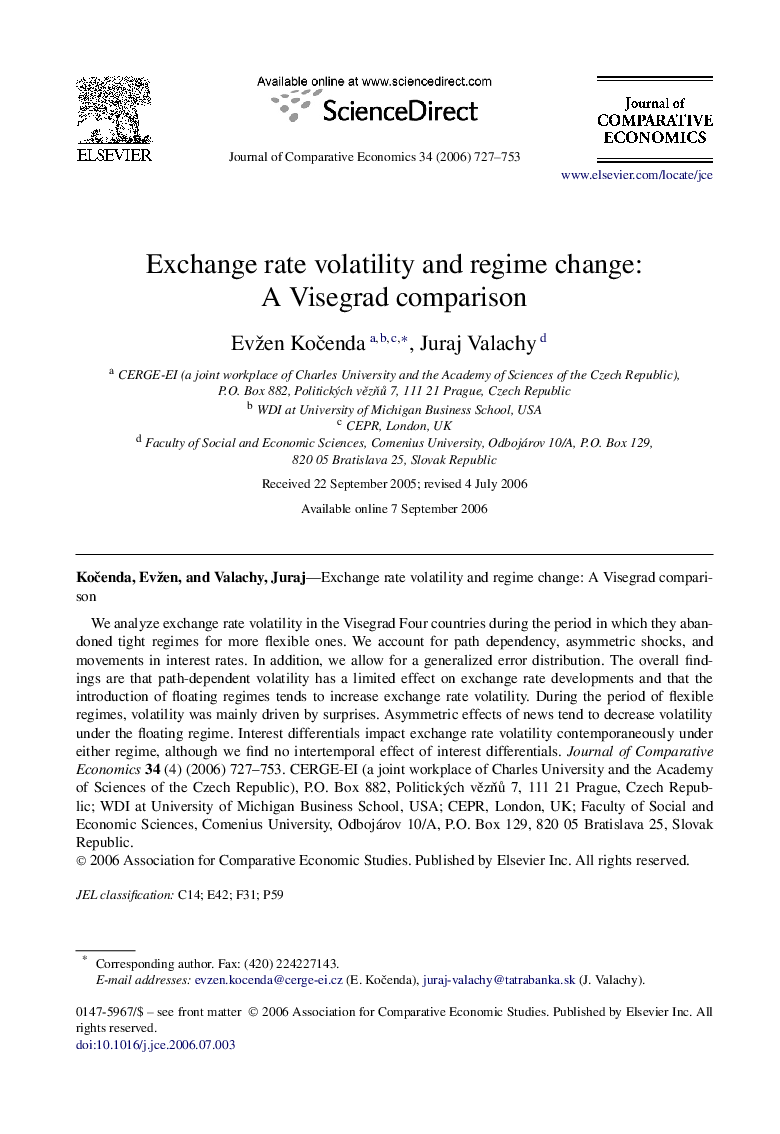| Article ID | Journal | Published Year | Pages | File Type |
|---|---|---|---|---|
| 5092650 | Journal of Comparative Economics | 2006 | 27 Pages |
Abstract
We analyze exchange rate volatility in the Visegrad Four countries during the period in which they abandoned tight regimes for more flexible ones. We account for path dependency, asymmetric shocks, and movements in interest rates. In addition, we allow for a generalized error distribution. The overall findings are that path-dependent volatility has a limited effect on exchange rate developments and that the introduction of floating regimes tends to increase exchange rate volatility. During the period of flexible regimes, volatility was mainly driven by surprises. Asymmetric effects of news tend to decrease volatility under the floating regime. Interest differentials impact exchange rate volatility contemporaneously under either regime, although we find no intertemporal effect of interest differentials. Journal of Comparative Economics34 (4) (2006) 727-753.
Keywords
Related Topics
Social Sciences and Humanities
Economics, Econometrics and Finance
Economics and Econometrics
Authors
Evžen KoÄenda, Juraj Valachy,
